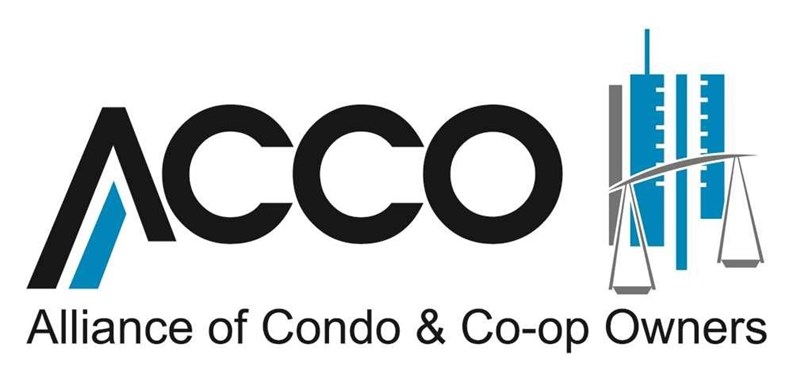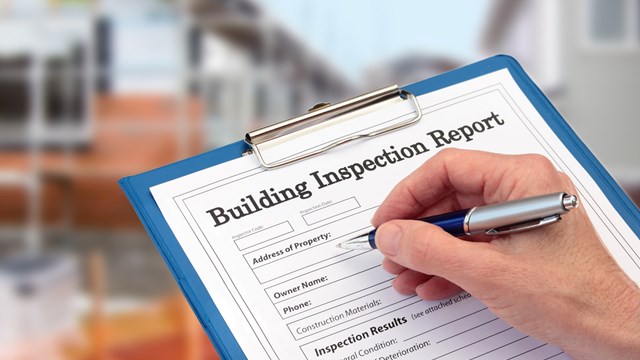Politics is a subject that can ignite fierce passions and discussions among the tightest of friends and the most loving family members. Being elected to a building's board doesn’t usually require a campaign budget, but financial and emotional politicking can pollute the atmosphere of community living, especially when board members choose not to uphold the stipulations of their own governing documents.
It’s not a common problem, but it is a serious one, and until recently, there have been few places for owners to turn when faced with a board that is giving them the strong-arm. The Alliance of Condo & Co-op Owners (ACCO) has been formed out of this need, and this grass roots effort is seeking to address a range of issues concerning the relationship between boards and residents.
Beginnings
The ACCO grew out of a series of forums for condo and co-op owners that state Senator Liz Krueger, D-26, started, says Larry Simms, the group’s president. “They were exceedingly well attended, in large venues. Elected representatives and experts were on hand, including attorneys and a representative from the attorney general’s office to answer questions. From there a group was formed.”
“We are a grassroots effort and lobbying organization,” continues Simms, “and we are working to educate owners as to their rights and responsibilities, and to counsel boards and board members.”
ACCO is not affiliated with a particular political party and is no longer associated with one particular office, says Simms “We are autonomous. We started up under the auspices of Senator Krueger’s office, and within a short time it was determined that we should be on our own.”
The primary disconnect that ACCO is trying to address is the inherent inequality between the unit owner and the board, whether is be financial, social, or otherwise, and how to respond to these issues, says Simms. “There was a lot of frustration at the forums that sometimes people who are on boards or support boards do not do what they are supposed to do, even in the face of governing documents.”
The Volunteer Staff
Despite their mission and willingness to go head-to-head with recalcitrant building boards, ACCO administrators stress that the organization is not to be mistaken for an anti-board organization. Their primary aim here is to make the system work better for everyone involved. “Most of us on the steering committee have been on boards or are on boards,” says Simms. “We would like to help boards to communicate better, and to make their fiscal operations transparent and responsible, and to make sure they represent the wishes of their constituents.”
The steering committee is comprised of ten volunteers, including: Lee Chong serving as vice president of advocacy, Steve Vernon as vice president of operations, and Jackie Paprin as vice president of communications.
Sample Issues
So, what kinds of issues come up that would require an intervention from an organization like this? “Last week I personally talked to two new members who had unusual legal problems,” says Simms.
“One woman had suffered water damage in her co-op, and her board did not want to pay for the cleanup and repair, so she did it on her own. She felt that she had really strong evidence that the association was responsible and she pursued the matter in small claims court.
“The board was represented by an attorney, who slowed the process. This senior citizen had to make around six trips downtown. Finally, the case was heard, and she was awarded all her costs, a few thousand dollars. The next month, her maintenance [bill] brought a surprise. She was charged the full cost of the boards’ attorney, which was thousands of dollars more than amount of the water damage cleanup. So her co-op association refused to do the repairs, spent more money fighting her claim than it would have cost to reimburse her, lost the case, and then saddled her with their legal bill…. all the while publicly branding her a troublemaker who caused everyone’s maintenance to increase. Where does she turn?”
A second example was from a condo owner, says Simms: “The owner that I spoke with was concerned that a board member was violating a house rule with impunity. He raised this issue at the annual meeting and he asked why the behavior was allowed. Everything was very civil...the building attorney was present and asked the owner to put his question in writing. After that meeting, he did just that. The owner never heard from the attorney, then got the attorney’s fee added to his common charge bill. Can you imagine being charged without warning for asking a question at an annual meeting?”
Legislative Efforts
One of the areas that receives a lion’s share of the organization is working toward helpful legislation. “We are having success with the ombudsman bill,” says Simms. Senator Krueger’s website describes the function of this legislation (S395-2011) as such: “The bill creates the Office of the Cooperative and Condominium Ombudsman within the Department of Law to serve as a neutral, informative, and accessible resource available to cooperative and condominium residents, prospective shareholders and unit owners, boards of directors and managers, and other affected parties.”
“What we are talking about it broad reaching legislation that would level the playing field for owners statewide,” explains Simms. “It would give people a place to go if they suffered abuses like the two examples that I gave you. Where do these people go? There is no criminal activity here…. the district attorney’s office will refer calls to some place else. This bill would expand the attorney general’s purview and you would have people who are dedicated to solving problems like this without litigation.”
“Personally I think our biggest success so far is in discussing with the opponents of the ombudsman bill. The only objection that I have heard is cost. We are talking about six dollars per apartment per year. I don’t know any owners who object to this, considering the benefits.”
Florida and Nevada are the pioneering states in championing such legislation, and the ACCO would like to see programs like theirs in New York.
The Primary MO
“I think what we need to do is get people to understand that sitting down and talking with members of the opposition is usually a good idea, whether there’s a mediator involved or not,” says Simms. “There should be open discussion. When you have things that are unfair, like closed elections, or things that are perceived to be unfair, you are going to have problems. If you deal openly with the issues and with people who may have a different opinion, usually you can come to a resolution that allows for suitable and orderly change. If you don’t do that, there will be an upheaval, and it will be costly to the community in terms of money and in terms of atmosphere within the building.”
“We are months old, and our focus now is on promoting this legislation and on continuing this series of forums. The first two were in Manhattan, and we are seeking to set up two in Queens this year. We will have one on the Upper West Side. We are also targeting Riverdale in the Bronx, and at least one—probably two—in Brooklyn.”
In addition to lobbying for legislation, the organization’s major effort is getting out to the communities, meeting with them about their issues, and helping them get answers to their questions.
Engaging Participation
“I think the most important thing is that everybody should join,” says Simms. “It costs a dollar. It won’t even cover the cost of the website, but it means that when we knock on the door of the legislators, we can say our entire membership is paid. Everybody in ACCO makes a commitment each year to support what we are doing, what we stand for, and what we are trying to achieve. By keeping it at a dollar, nobody really has an excuse not to join.”
Other Issues
Some of the issues are power-driven. “When I’m dealing with my clients, the biggest frustration is that any owner will typically agree to alternative dispute resolution (ADR). But in nearly every case, the attorney advises the board not to agree to this, and the association has deep pockets. It’s often perceived to be in the board’s interest to let costs escalate, and the issue is never seen in arbitration.”
“Let’s try to stay out of court whenever possible,” says Simms. “With this bill, this is what would happen as a matter of course.”
Another issue relates to reserve studies: “There is a boilerplate clause found in almost any audited statement that states that the association has elected not to do a repair and replacement study, we have chosen not to plan for infrastructural necessities, such as upgrading elevators or replacing roofs,” says Simms. “We have chosen not to plan, and so there may be times when the owner are hit with unpredictable expenses when these repairs become necessary.”
“The worst part is that boards have actually been advised not to do these reserve studies,” says Simms, “because it can generate liabilities if a deficiency in a building is spotted and reported and the building doesn’t do anything about it.”
“It’s the worst practice to hit condos and co-ops in terms of fiscal governance, and we would like to see that changed,” says Simms. “In California, they have a statewide requirement that states these studies must be done every few years, and they must be funded.”
“You wouldn’t own a single family home without keeping an eye on when you are going to need paint, structural repair, plumbing, whether you need to expand electrical capacity,” explains Simms, “yet hundreds of people can live in a high-rise worth ten of millions of dollars, and they don’t undertake that very basic planning. Many people get hurt in times like these.”
One of the problems that ACCO faces is reaching people who need the most help, says Simms. “The 80/20 rule applies here…just 20% of boards are responsible for 80% of the problems that we see. Many times the boards that really need to read this article are not going to see it. The boards that create problems have their eyes and ears closed, unfortunately.”
For further information about the organization, visit www.condo coopowners.org or email them at info@condocoopowners.org.
Denton Tarver is a freelance writer and a frequent contributor to The Cooperator.







Leave a Comment